Zucchinis are a popular type of squash used in many ways. However, this fruit can go bad quickly, so you want to examine it well before eating.
Below are seven ways to tell if your zucchini is bad.
Table of Contents
How to Tell Your Zucchini Is Bad
1. Mold
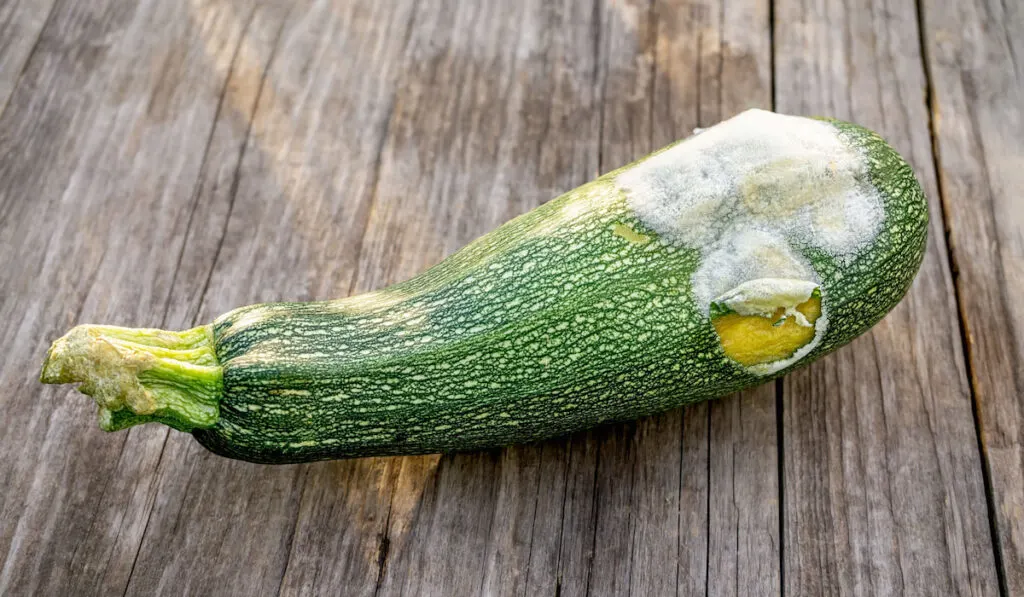
Mold comes from decomposing fungi in your zucchini and indicates that the fruit is inedible.
You may also see powdery mildew on the fruits. The mold or mildew can come in different colors, depending on the species of fungi and how old the mold is.
Throw any moldy zucchinis away.
2. Wrinkly Skin
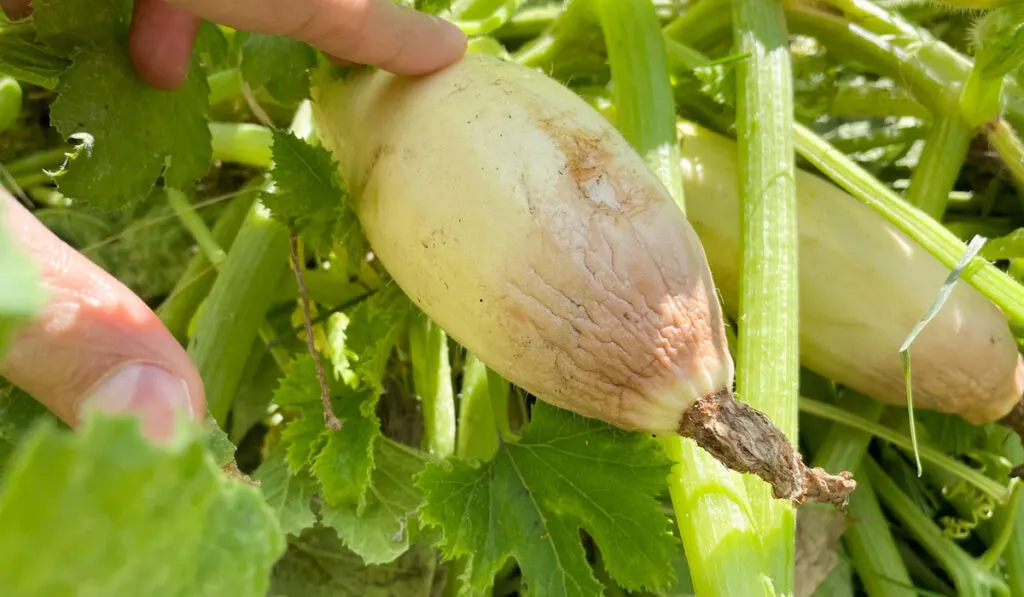
If your zucchini is going bad, its skin will start to look shriveled or wrinkled.
The fruit will feel mushy and soft, and the inner flesh will become stringy. The fruit will look and feel different than a normal zucchini.
These changes are not due to decomposition, but rather because the fruit has passed its peak ripeness. Keep in mind that you can eat zucchinis before they have fully matured.
3. Bad Taste
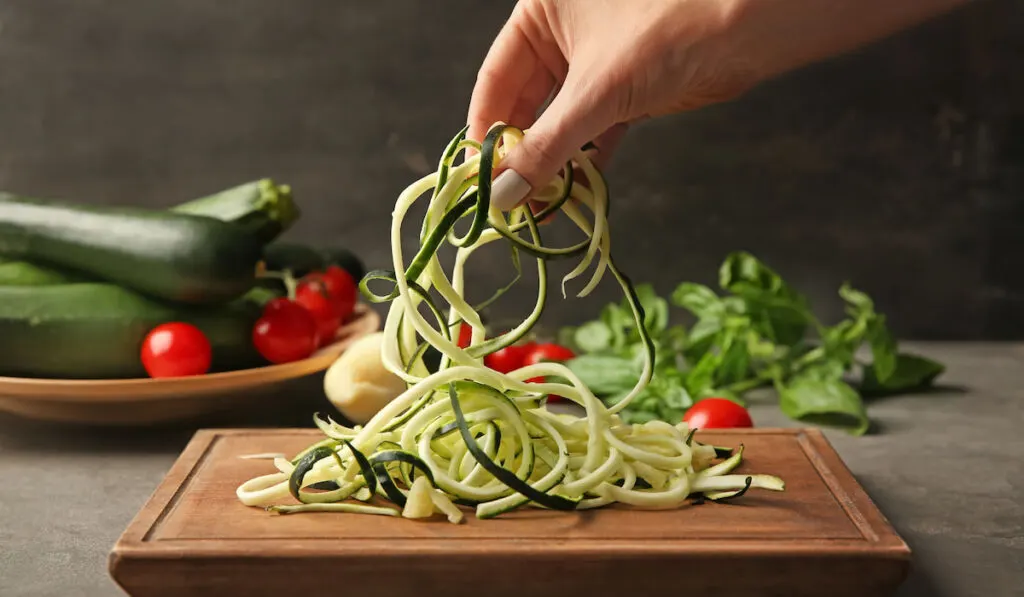
One of the most common ways to tell that a zucchini is bad is to taste it. If your zucchini has a bad or sour taste, this may mean it has gone bad.
In addition, a bad zucchini may upset your stomach. If you eat a zucchini that tastes bad and makes you sick, throw it away immediately.
4. Discoloration and Spots
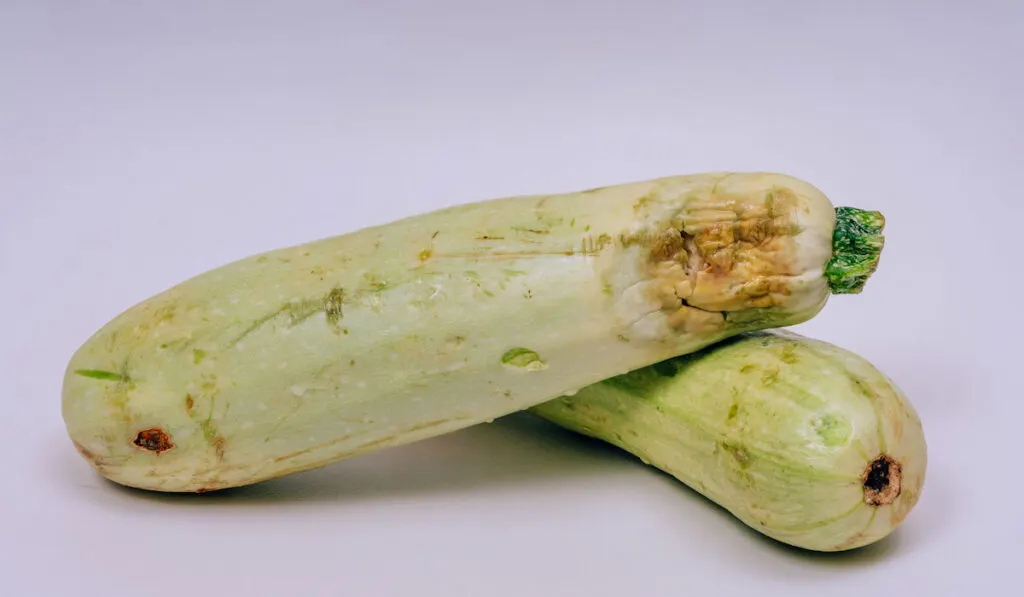
If you notice discoloration on your zucchini, this may mean that decomposition has started.
The lighter patches on the skin may also feel softer. You only want to eat the parts of zucchini that look fresh.
Spots on your zucchini may indicate that the fruit is no longer good to eat. If this is the case, you can slice off the parts with spots and eat the rest.
5. Smell
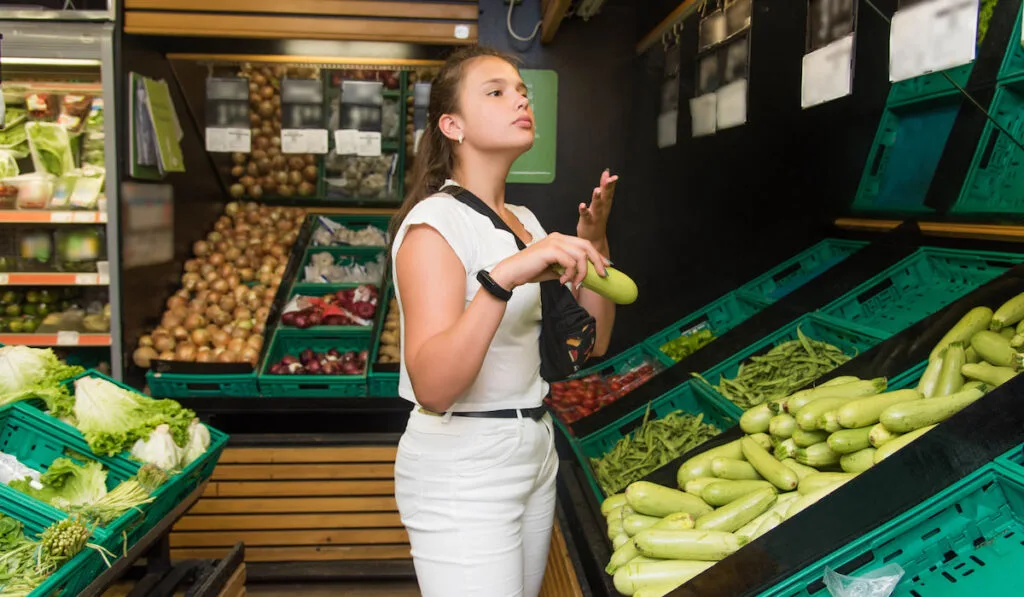
Decomposing microbes, such as fungi and bacteria, can release a foul smell. Fresh zucchinis should smell sweet; a bad small can indicate your fruit is going bad.
The smell of the fruit can also attract insects. If you see flies and other scavengers flying around your zucchinis, it means that the fruit is going bad.
Dispose of any zucchini that smells bad, as it may not be safe to eat.
6. Consistency
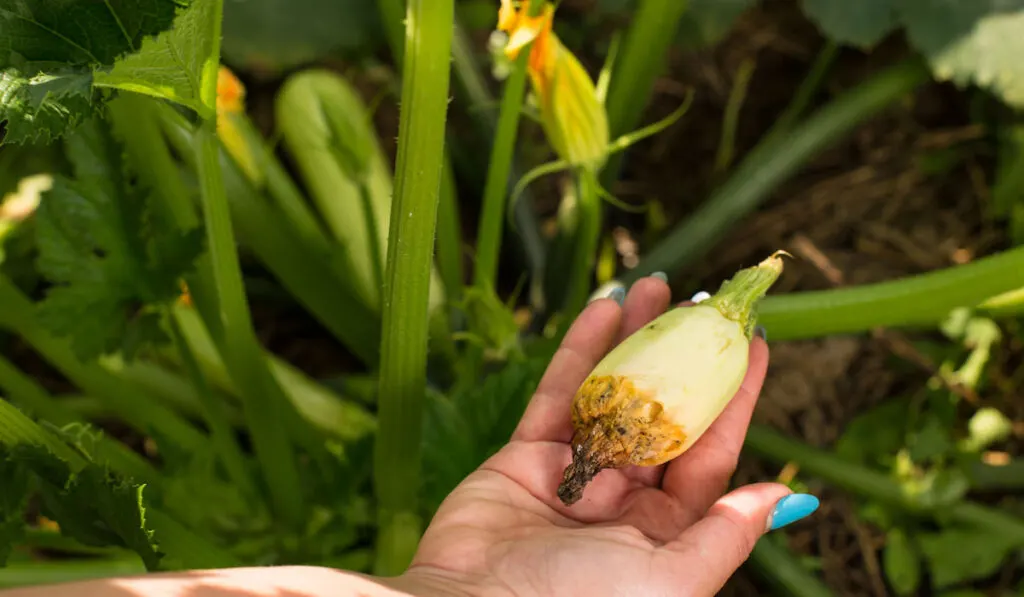
Zucchinis should be firm to the touch. If you press the fruit and it feels soft or mushy, this may mean it is rotting.
To confirm, slice the zucchini open with a knife and examine the texture, appearance, and smell of the inside. Fresh zucchinis should look and smell good.
If the zucchini is soft to the touch but still looks, feels, and smells safe to eat, taste a little bit of it.
If it tastes fine, you can eat it. However, try to eat it quickly before the fruit goes bad.
7. Time
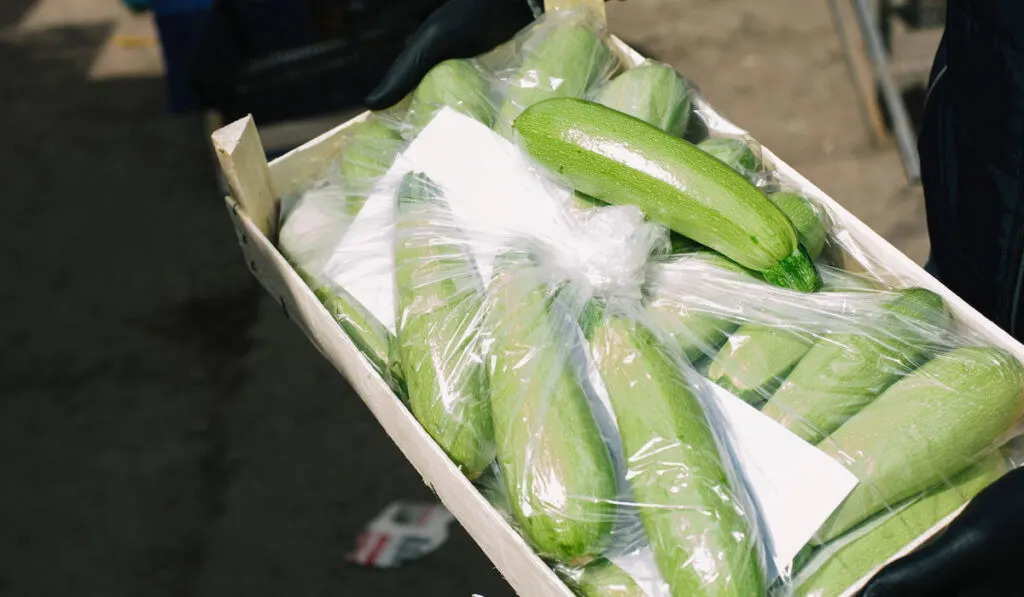
Your zucchinis will start decomposing based on how you have stored them.
Zucchini can keep for six or more months in the freezer, one to two weeks inside the refrigerator, and fewer than five days at room temperature.
Remember the date you purchased the zucchini to keep track of its freshness. To prolong its life, make sure you store your fruit correctly.
Continue reading to learn the best storage techniques for your zucchinis.
How to Keep Zucchinis From Going Bad
1. Refrigerate or Freeze
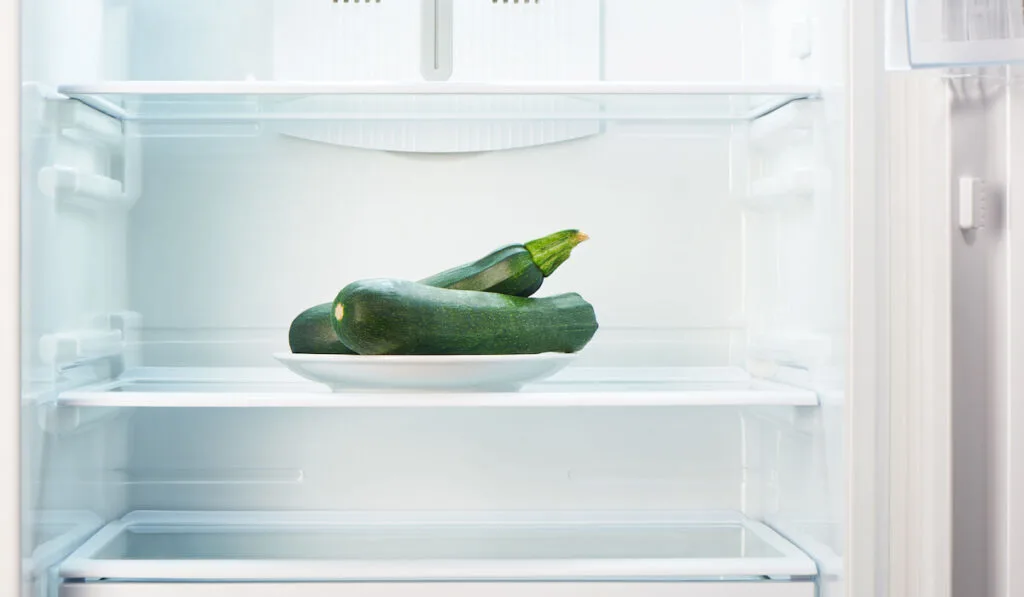
The best way to store a zucchini is to freeze it.
Freezing prevents fungi and other decomposing microbes from acting on the fruit.
Zucchinis can last for months in the freezer, but they will quickly go bad as soon as you take them out.
You can also refrigerate your zucchinis by placing them in the crisper drawer.
2. Seal Them
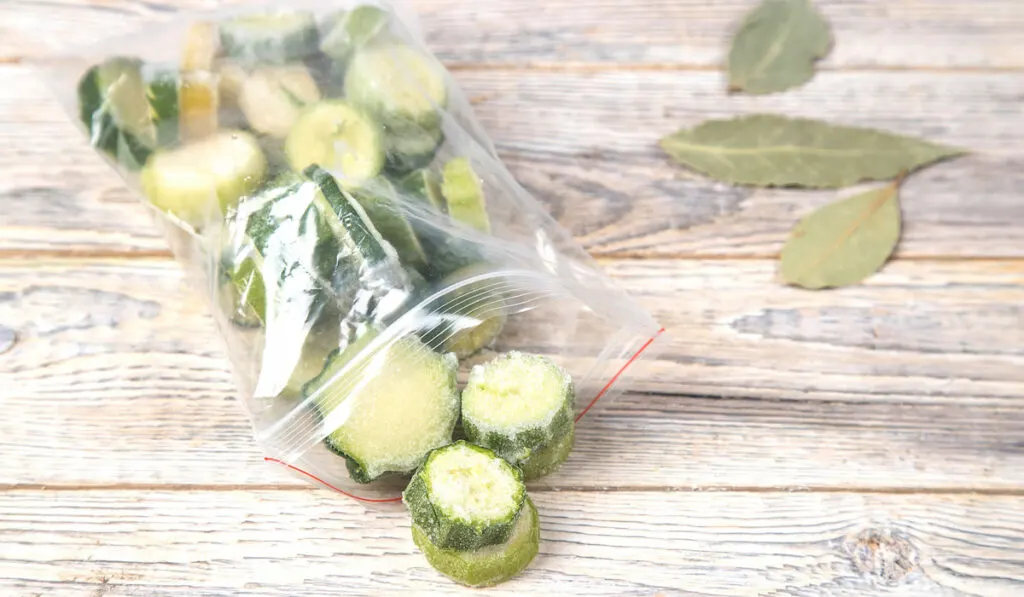
Whether you use a Ziploc bag or an airtight container, make sure your zucchinis are not exposed to air. Airborne microbes can decompose the fruits when exposed.
Before storing your zucchinis, make sure you properly rinse them.
If you do not rinse the fruits before storing them, you may expose them to microbes that thrive in oxygen-poor environments.
3. Dispose of Bad Zucchinis
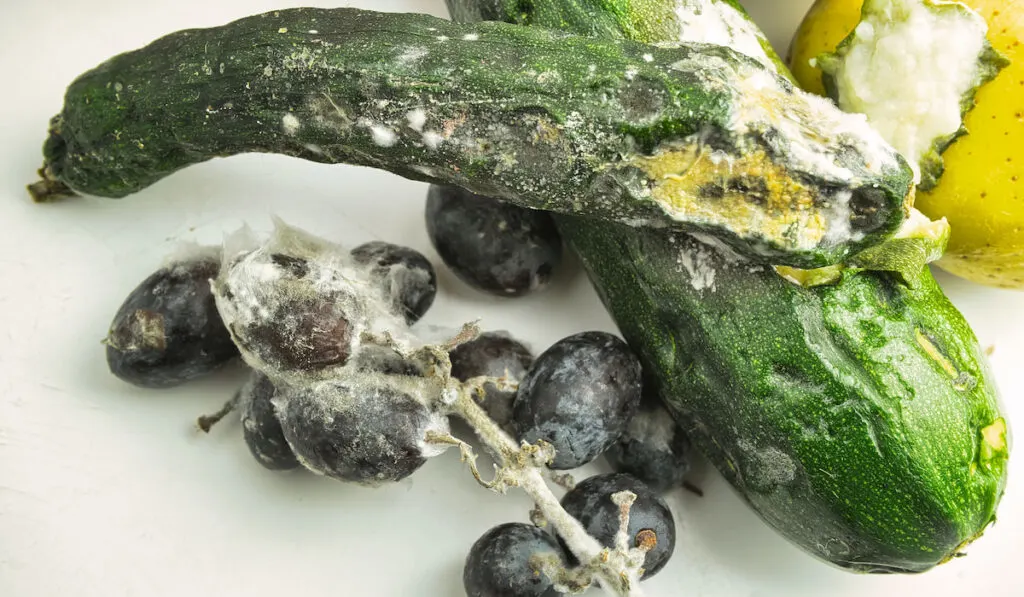
Not all zucchinis will go bad at the same time; some spoil faster than others.
Find the zucchinis that are rotting more quickly so you can throw them away.
Make sure you separate the fresh zucchinis from the bad ones, as fungi and other microbes can easily move to fresh zucchinis.
4. Leave in Original Packaging
Many stores keep their fruits in packages to help them last longer.
Keep zucchinis in their original package until you are ready to use them. They can go bad quickly once you open them.
If you open the package but can’t use all the zucchinis, store them using the tips mentioned earlier in this article.
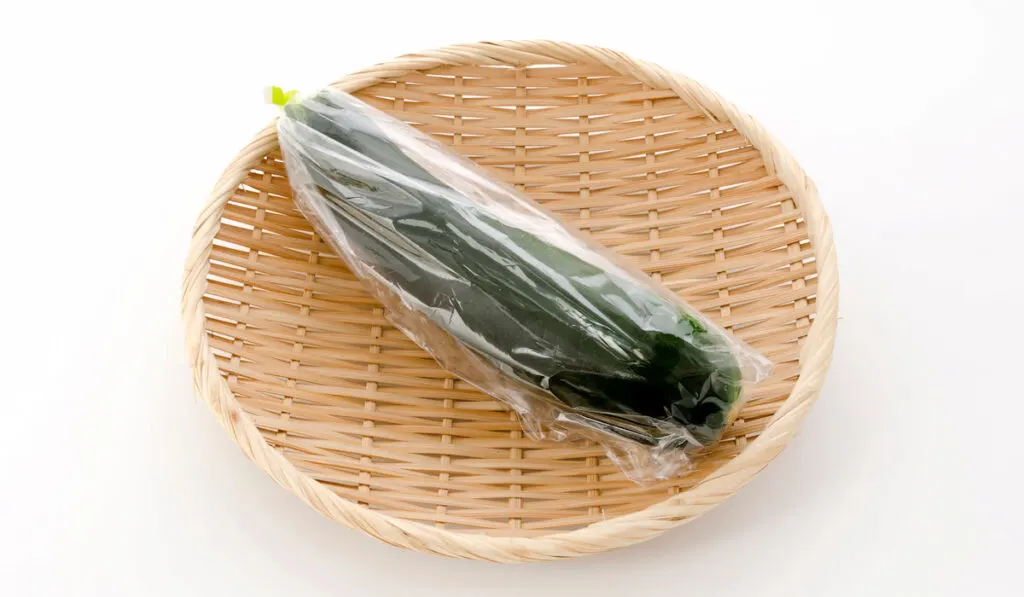
5. Eat Quickly
The best way to prevent your zucchini fruits from going bad is to eat them while they are fresh.
If you are going to a store, only buy the amount of zucchini that you can eat or store in your freezer.
If you are a gardener, only plant the number of zucchinis that you can eat, store, or share with your neighbors, friends, and families.
You can use fresh zucchinis to make delicious salads and soups.
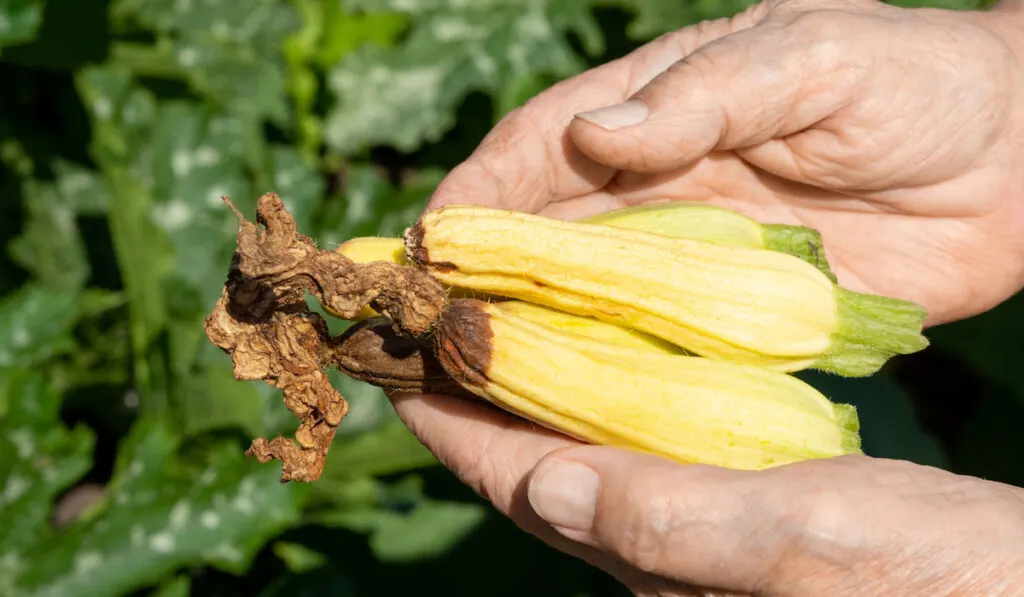
What to Do With Spoiled Zucchinis
The best thing to do with spoiled zucchinis is to throw them away. If you have a compost pile, you can add the zucchinis to it.
You can also use your zucchini as fertilizer. When you see mold on your zucchinis, bury them in the garden to release the nutrients directly into the soil.
Conclusion
Zucchinis are healthy, but they can go bad quickly. Make sure you check your fruits thoroughly before eating them.
Use the tips in this article to make sure your zucchinis are safe to eat.
